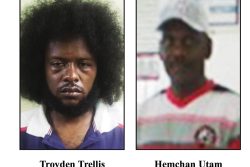We have a natural right to make use of our pens as of our tongue, at our peril, risk and hazard. – Voltaire, Dictionnaire Philosophique, 1764
The UN Declaration of Human Rights has enshrined Voltaire’s “natural right” in Article 19, calling it a fundamental human right. Unfortunately, from Voltaire’s 1764 writings to now, the “peril, risk and hazard” that come with freedom of expression have remained in way too many countries in the world. Sixty years after the declaration of human rights, millions remain voiceless and those who seek to speak for them or tell their stories risk their jobs, freedom and sometimes their lives to do so.
As the world observes another World Press Freedom Day today, there are journalists languishing in prisons, being killed or simply disappearing as governments and some groups seek to silence them. In its report ‘Getting Away with Murder’ released on April 30 the Committee to Protect Journalists (CPJ) listed the top countries where journalism continues to be a dangerous profession.
The report’s ‘Impunity Index’ lists Iraq, Sierra Leone, Somalia, Colombia, Sri Lanka, the Philippines, Afghanistan, Nepal, Russia, Mexico, Bangladesh, Pakistan and India as the top 13 places in the world where journalists are killed because of who they are and what they do and where their murders mostly remain unsolved. It was George Bernard Shaw who said that assassination was an extreme form of censorship. However, that being the case does not seem to make it any less likely to occur. Nor does the likelihood of it happening deter journalists from seeking the truth.
There are other ‘forms of censorship’ as well, of which journalists are all too well aware, restricted access to information being perhaps the most obvious, as it not only affects the media but the wider society as well. The inability to make one’s voice heard is perhaps more disempowering than poverty or hunger. It is one thousand times worse when this incapacity is as a result of political or other control. It is when this control exists that the media tend to be seen as combative.
As part of its observance of World Press Freedom Day, UNESCO has chosen to explore “how media freedom and access to information feed into the wider development objective of empowering people.” This is fitting since the organization is one of several supporting the three-day Caribbean Media and Communication Conference (CMCC) here, which ends today. Guyana is among a host of countries in the region, where there are no freedom of information laws and where lip service (pun intended) is often paid to the term freedom of speech. Yesterday being a classic example as the Government of Guyana chose to host a parallel media conference to the CMCC, no doubt to get its own point over.
One hopes that at the end of today’s sessions, practitioners from around the Caribbean would be suitably empowered to mount more aggressive lobbies, using the various media available to them, for the laws that have been promised to be brought to the table – freedom of information and, especially in Guyana, broadcast legislation. If governments want to be taken seriously when they speak of democracy and freedoms they must be prepared to do more than talk.








